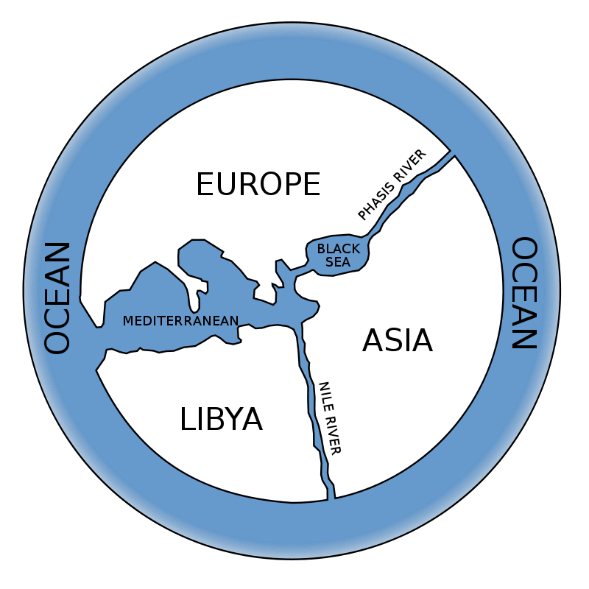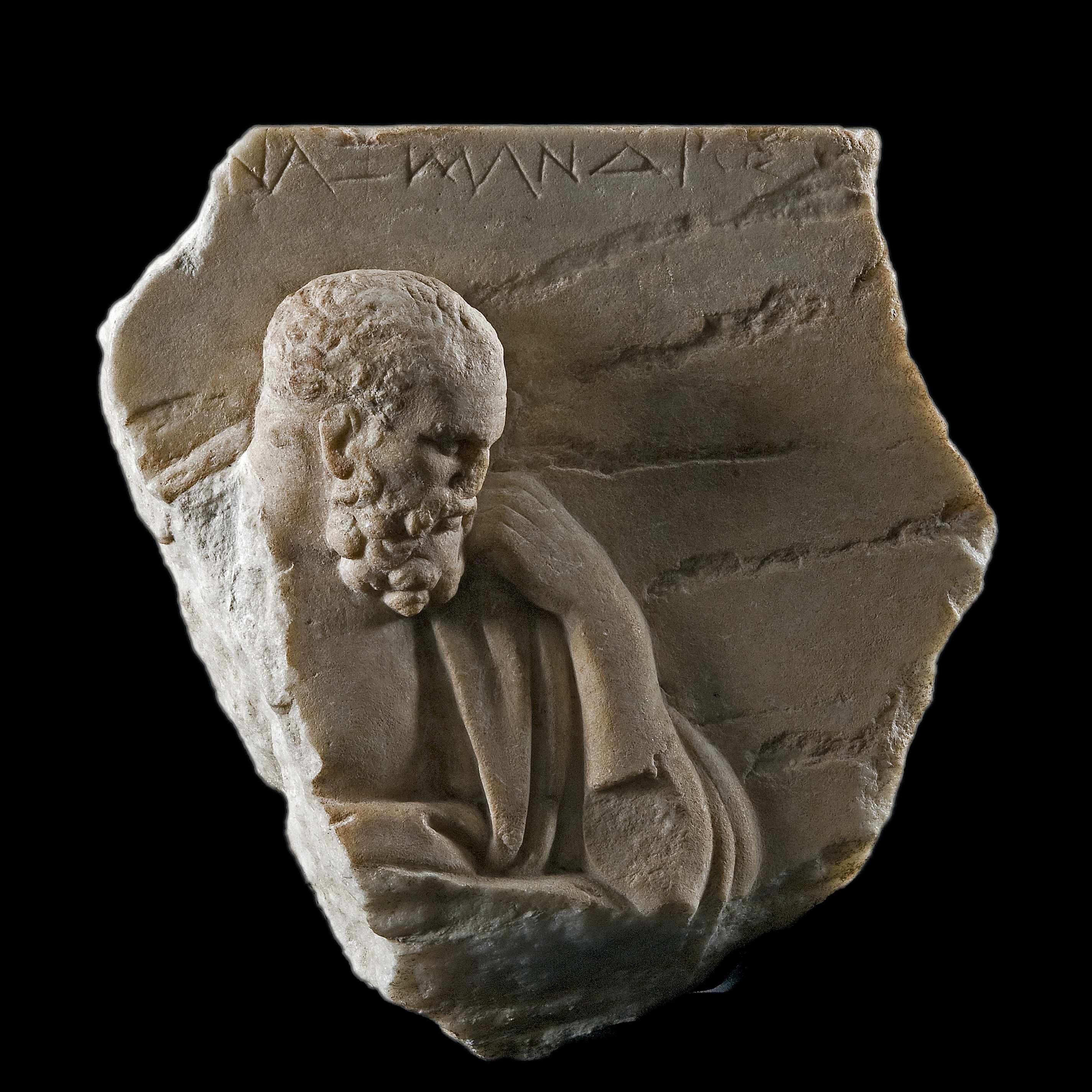Anaximander: Pioneer of Pre-Socratic Philosophy and Cosmology
In the annals of ancient philosophy, few figures have made as indelible a mark as Anaximander of Miletus. Born around 610 BCE, Anaximander was a pre-Socratic Greek philosopher whose ideas shaped the course of Western thought, positioning him among the pioneering thinkers of antiquity. Although much of his life's work has been lost to time, the fragments that endure cement his reputation as a bold philosopher and innovative cosmologist. This article explores the life, intellectual contributions, and lasting significance of Anaximander's work.
Early Life and Intellectual Influences
Anaximander hailed from Miletus, a cosmopolitan city located in what is modern-day Turkey. During the early 6th century BCE, Miletus was a bustling hub of commerce and culture, facilitating the exchange of ideas between various civilizations of the ancient Mediterranean. It was within this vibrant milieu that Anaximander developed his philosophical ideas, becoming a member of the Milesian School of natural philosophy, founded by Thales, often considered the first philosopher.
Thales' work laid foundational inquiries about the nature of reality, emphasizing the search for a single underlying substance to explain the diversity of the natural world. Anaximander, who was likely a student or associate of Thales, built upon these ideas, integrating them with his own unique insights about the cosmos.
Anaximander's Theories and Contributions
Despite the paucity of surviving documentation, Anaximander's contributions to philosophy and science remain profound. His most significant work likely encompassed his cosmological views, which broke away from mythological interpretations of the universe, pioneering a more rational, naturalistic approach. Anaximander proposed that the fundamental principle (or "archê") underlying all existence was not a recognizable substance like water, as Thales suggested. Instead, he introduced the concept of the "apeiron," a boundless, infinite entity that was eternal and indestructible, from which all things emerge and eventually return.
This notion of the "apeiron" was revolutionary as it suggested that the universe was governed by principles beyond human comprehension, providing an early framework for understanding the cosmos without relying on deities or anthropomorphic explanations. Anaximander's emphasis on natural laws and processes laid critical groundwork for future philosophical inquiry and scientific exploration.
Anaximander's Earth and Cosmology
One of Anaximander's most remarkable contributions was his model of the cosmos. He envisioned the Earth as a free-floating entity, not supported by anything, marking a significant departure from previous conceptions that viewed the Earth as resting on water or being held up by a divine being. Anaximander proposed that the Earth was cylindrical in shape, with a diameter three times its height, suspended at the center of the universe. This radical idea suggested that the Earth existed in equilibrium because it was equidistant from everything else, a concept that pushed the boundaries of contemporary thought.
Further expanding on this model, Anaximander also theorized about the structure of celestial bodies. He postulated that the Sun, Moon, and stars were not local phenomena but distant, circular bodies revolving around the Earth. This astronomical insight not only influenced later Greek thinking but also hinted at ideas that would resonate through centuries of astronomical exploration.
Biological Speculations and the Origins of Life
In addition to his cosmological theories, Anaximander ventured into biological speculation, proposing one of the earliest accounts of life's origins. He suggested that life began in the moisture of the Earth's surface, with the first living creatures emerging from the primordial seas. According to his thoughts, these primitive organisms eventually evolved, adapting to their environment, and gave rise to more complex forms of life, including human beings.
This notion of spontaneous generation and evolutionary development, though rudimentary by modern standards, introduced foundational ideas about evolutionary change and adaptability. Anaximander's reflections on natural processes were among the first to suggest that life could arise from non-life, setting the stage for future naturalistic explanations of biological phenomena.
Legacy and Historical Significance
Anaximander's contributions to human thought are profound, and his legacy endures in the fields of philosophy, science, and cosmology. As one of the earliest thinkers to propose a unified principle governing the universe and to lay the groundwork for scientific inquiry, Anaximander prompted subsequent generations to explore the complexities of the natural world through observation and reason. His concept of the "apeiron" and his cosmological models influenced future pre-Socratic philosophers and left an indelible mark on the evolution of scientific thought.
Despite the fragmentary state of his works, Anaximander's ideas resonated throughout antiquity, even as later philosophers such as Aristotle critically engaged with and refined them. He remains a pivotal figure in the history of ideas, representing a crucial step in humanity's quest to understand its place in the cosmos and the nature of existence itself.
Scientific Methods and Observations
Anaximander's innovative approach extended beyond his seminal concepts of cosmology and biology, into the methods he employed to understand the world. Unlike many of his predecessors, Anaximander emphasized empirical observation and rational deduction as tools to decipher natural phenomena. This methodological shift from mythological to rational explanations represents one of his most significant intellectual achievements, often regarded as a precursor to the scientific method.
Anaximander is credited with creating one of the earliest known maps of the world. As a pioneer of geographical exploration, he sought to broaden the scope of human understanding regarding the world's layout beyond the anecdotal evidence collected from travelers and explorers. This endeavor marked an evolution from the predominant worldview of the time, beginning to describe the world in measurable and analyzable terms.
While details about the map itself are sparse, historical accounts suggest it depicted the Earth as a flat disk surrounded by an ocean—a common belief in Ancient Greece. Nevertheless, his attempt to chart the known world was groundbreaking, laying foundational principles for the field of geography and influencing future cartographers in the centuries to follow.
Anaximander and Meteorological Phenomena
Another intriguing area of Anaximander's intellectual pursuit was his interest in meteorology and the processes governing atmospheric conditions. He theorized that wind and rain were the result of natural forces rather than the caprices of the gods, challenging prevailing beliefs and moving towards a more systematic understanding of weather patterns.
Anaximander posited that winds were caused by the sun's effect on moist, air-filled cavities of the Earth, heating them and causing air to move. This rudimentary explanation, while lacking the precision of modern meteorological science, nonetheless marked an important transition from mythological interpretations of nature to those grounded in observable processes.
His ideas about meteorological phenomena reflected a broader inclination to discover rational explanations for natural occurrences. By attributing such events to natural rather than supernatural causes, Anaximander paved the way for the Enlightenment and the eventual development of modern science.
The Theoretical and Practical Significance of Anaximander's Work
Anaximander's legacy is a testament to the profound significance of questioning and challenging conventional wisdom. His theoretical propositions, though speculative and occasionally incorrect, exercised immense influence on successive generations of philosophers and scientists. In the absence of precise instruments and empirical datasets, Anaximander's speculative advancements were borne out of keen observation and intellectual daring.
His conceptual framework of the "apeiron," the notion of boundless potential at the origin of all things, had profound implications for metaphysical speculation. This idea arguably influenced other philosophical paradigms, resonating through the works of his philosophical successors such as Anaximenes and Heraclitus, and extending into Platonic and Aristotelian thought.
Anaximander's courageous challenge to established norms had practical implications as well. By advocating for observational inquiry and rational interpretation, he inspired a dialectic that would shape the scientific landscape. Anaximander's endeavors compelled later philosophers to refine observational methodologies, gradually integrating empirical evidence into scientific analysis.
Influence on Subsequent Philosophers
The intellectual daring of Anaximander did not go unnoticed by his contemporaries and successors. Anaximenes, another prominent figure within the Milesian School, further developed Anaximander's theories by redefining the primal element as air and incorporating his teacher’s methods into his own philosophy. Heraclitus took inspiration from the axiom of perpetual change inherent in Anaximander’s ideas, while Empedocles and Pythagoras integrated and wrestled with his cosmological and metaphysical notions.
Aristotle, despite being critical of some of Anaximander's claims, recognized the significance of his efforts in redefining the landscape of philosophical inquiry. In his reflections on Anaximander's cosmology, Aristotle acknowledged the innovative attempts to explain the natural world without reliance on supernatural causes—a breakthrough that foreshadowed the scientific revolutions of future centuries.
Enduring Impact on Modern Thought
The echoes of Anaximander's ideas are discernible across diverse realms of modern thought. His concept of the "apeiron" prefigures themes of the infinite and the unknown that permeate contemporary cosmological and philosophical discussions. The innovative vision of a cosmology governed by natural laws, which Anaximander championed, finds a spiritual kinship with the scientific pursuit for laws governing the fundamental forces of the universe.
In his unfaltering quest for knowledge, Anaximander remains an emblem of intellectual curiosity and philosophical courage. His willingness to question and explore uncharted intellectual territories challenges modern thinkers to continue the pursuit of understanding the intricate web of nature, the cosmos, and humanity's place within it.
As we reflect on Anaximander's contributions, it becomes evident that his philosophical explorations stand as a testament to the transformative power of curiosity, inquiry, and the indefatigable human spirit's yearning to unravel the mysteries of existence. His life and work inspire us to pursue ever-deeper insights into the enigmas of our universe, unyielding in the search for clarity and truth.
The Challenges and Limitations of Anaximander's Thought
While Anaximander's contributions to philosophy and early science were undeniably formative, his ideas were not without their challenges and limitations. The intrinsic nature of pioneering new fields often entails speculative leaps and provisional theories that, while groundbreaking, require refinement by later thinkers. Anaximander's theories are no exception.
The concept of the "apeiron," although revolutionary in its abstraction, presented philosophical questions that were difficult to resolve. Describing something so fundamental yet indefinable stirred debates among his contemporaries and successors, prompting inquiries into how such an indefinite principle could manifest as the diverse and structured cosmos observed in everyday life. Aristotle, for example, grappled with this notion, attempting to reconcile the infinite with observable reality.
Anaximander's cosmological model also posed interpretive challenges. The idea of a free-standing Earth, unsustained by any foundational support, required an intuitive leap that exceeded the empirical evidence available at the time. Without the advantage of modern astronomical tools and techniques, Anaximander's vision depended heavily on deductive reasoning and analogical thinking, which proved both its strength and its vulnerability—making room for philosophical scrutiny and enhancement by future advances.
Historical Context and Anaximander's Uniqueness
Understanding Anaximander's intellectual legacy requires an appreciation of the historical context in which his work arose. Ancient Greek civilization, particularly during the pre-Socratic era, was characterized by a burgeoning spirit of inquiry and innovation, as thinkers began shifting from mythos to logos—seeking natural, rational explanations for worldly phenomena.
In this vibrant cultural landscape, Anaximander stands out for his courage in defying conventional wisdom and pursuing new paradigms of thought. Unlike other figures, who retained elements of mythical thinking alongside rational inquiry, Anaximander's work demonstrated a more abiding commitment to understanding the universe through natural principles. This distinct approach earns him a special place in the chronicle of philosophical development; he was not just an inheritor of Thales' intellectual legacy but an innovator who helped forge new directions for philosophical discourse.
The Transmission and Preservation of Anaximander's Ideas
Anaximander's works have been largely lost, with only a few fragments and accounts by later philosophers surviving to the present day. The scarcity of original texts renders each fragment both precious and critical for reconstructing his intellectual contributions. His efforts to document his theories—likely through written treatises and geographical renderings—testify to an early recognition of the importance of preserving knowledge for future generations.
Discussions of Anaximander by figures such as Aristotle and Theophrastus reveal a concerted effort to preserve and critically evaluate his philosophical insights. These later figures, despite sometimes critiquing Anaximander's methodologies, nonetheless recognized the seminal import of his work and its influence on subsequent philosophical inquiry.
The continued engagement with and transmission of Anaximander's ideas is emblematic of the enduring dialogue between past and present, between ancient philosophy and contemporary thought, demonstrating the vitality and relevance of his intellectual legacy.
The Philosophical Resonance of Anaximander’s Legacy
The resonances of Anaximander's work echo through centuries of philosophical discourse, enriching subsequent traditions and schools of thought. His investigations into the nature of existence and the cosmos explored questions of origin, structure, and transformation—issues that remain central to both philosophical inquiry and scientific exploration today.
In modern metaphysical debates, the essence of the boundless as an abstract concept continues to engage philosophers grappling with notions of infinity, potentiality, and the ultimate nature of reality. Cosmologically, Anaximander's vision prefigures contemporary explorations into the mysteries of the universe—be it the quest for understanding cosmic origins or the search for a unified theory of everything.
As scholars reflect on Anaximander's influence, they must acknowledge his role in inspiring a broader philosophical lineage. His work implicitly models the dialogical engagement with ideas that sustains philosophical progress: a willingness to propose, to test, and to refine complex concepts that have both shaped human understanding and expanded its horizons.
Anaximander's Lasting Impact
In evaluating Anaximander’s impact, one must appreciate him not merely as a standalone figure but as a crucial node in the vast intellectual tapestry of human history. His pioneering inquiries into natural philosophy continue to inform our understanding of the interplay between observation, rationality, and the natural world.
Anaximander's commitment to exploring nature’s uncharted territories set the tone for future scientific inquiry, challenging his successors to refine and expand upon his foundational ideas. The courage and curiosity that defined his work serve as an enduring reminder of the transformative power of questioning and exploration—a legacy that inspires those engaged in the continuous journey to comprehend the intricacies of existence.
As humanity ventures ever further into the reaches of scientific and philosophical exploration, Anaximander's spirit of inquiry persists. It encourages new generations of thinkers to look beyond the known, to question the evident and the assumed, and to blaze new trails as we endeavor to illuminate the mysteries that lie at the heart of our universe. Through this enduring legacy, Anaximander remains an indelible part of the human quest for knowledge and understanding, his ideas echoing across the corridors of time.









Comments